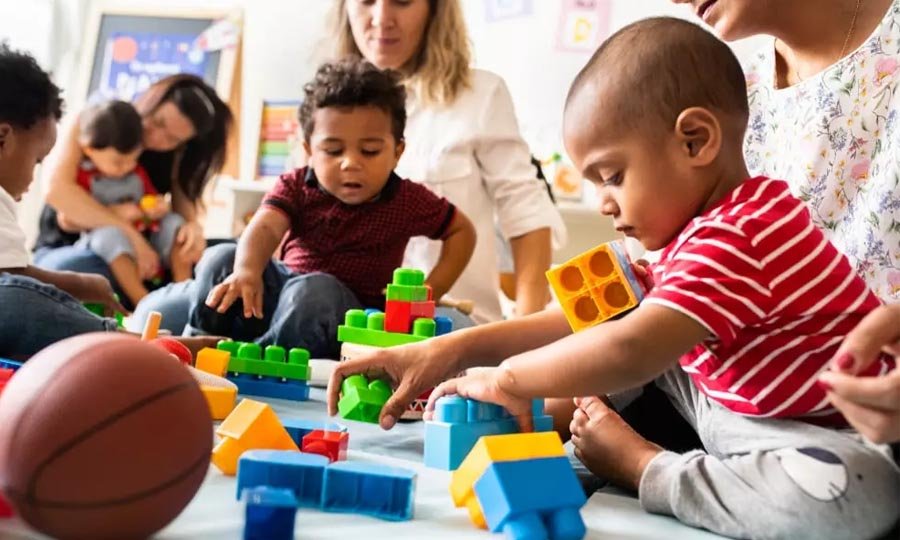Early childhood education plays a pivotal role in the development of young minds, laying a solid foundation for lifelong learning and success. This formative period is crucial as it shapes the cognitive, emotional, and social skills of children. By nurturing these young learners from the outset, we can foster a generation of innovative, empathetic, and skilled individuals. In this discussion, we’ll explore the multifaceted approaches to early childhood education, emphasizing the importance of tailored learning environments and the impact of nurturing on a child’s development.
The Significance of Early Years
The early years of a child’s life are more than just a prelude to formal schooling. They are a critical period for brain development, with the first five years particularly crucial as the brain develops at a phenomenal speed. During this time, children acquire the basic skills that form the building blocks of reading, math, science, and the arts. Moreover, their experiences and interactions during these years significantly influence their social competencies and emotional health.
The environment in which children grow plays a vital role in this developmental phase. Engaging spaces that stimulate curiosity and learning are essential. For instance, Montessori Ryde focuses on creating learning experiences that are both educational and enjoyable, enabling children to explore their interests at their own pace in a structured environment. This approach not only supports academic skills but also promotes independent thinking and problem-solving abilities.
Tailoring Learning Environments
One size does not fit all when it comes to learning environments for young children. Each child is unique, with different interests, learning speeds, and developmental needs. Tailored learning environments recognize these differences and adapt to suit individual children. These settings provide various materials and activities that cater to diverse learning styles and developmental stages, ensuring that each child can thrive.
Interactive and sensory-rich environments are particularly effective in early childhood education. These environments allow children to touch, play, and learn through direct experiences. From tactile activities like clay modeling and finger painting to more structured tasks like puzzle solving and storytelling, children are encouraged to explore and discover, boosting their cognitive and creative abilities.
Role of Educators in Early Development
Educators in early childhood settings are more than just teachers; they are facilitators of learning, mentors, and role models. The interactions that children have with their educators can significantly influence their attitude towards learning and their self-esteem. Effective educators are patient, attentive, and proactive in understanding the individual needs of each child.
Training for educators also emphasizes the importance of nurturing not just academic abilities but also social and emotional skills. Strategies such as positive reinforcement, conflict resolution, and empathy training are integral in helping children develop healthy relationships and self-awareness.
Parental Involvement and Its Impact
Parental involvement is another cornerstone of effective early childhood education. When parents or guardians are engaged in their child’s learning process, it reinforces the child’s understanding that learning is valuable and continuous, not confined to the classroom. Parents participating in school activities, assisting with homework, and showing interest in educational progress positively affect a child’s motivation and confidence.
Schools and educational centers can support this by creating inclusive communities that invite parental involvement through workshops, regular meetings, and open classroom days. These initiatives help bridge the gap between home and school environments, making education a collective effort of both educators and families.
Future Directions in Early Childhood Education
As we look towards the future, the landscape of early childhood education continues to evolve. Technological advancements and innovative teaching methods are increasingly being integrated into early learning curricula. Virtual reality, interactive apps, and online platforms offer new ways to engage young minds and cater to various learning preferences.
Moreover, there is a growing recognition of the need to embed sustainability and global citizenship in early education. Teaching children about environmental stewardship, cultural diversity, and social responsibility from a young age instills values that are crucial in today’s globalized world.
Nurturing early childhood education is akin to tending a garden. Each child, like a young seedling, needs the right conditions and care to grow and flourish. By providing tailored learning environments, skilled educators, and strong parental support, we can ensure that these young minds not only sprout but also thrive. The journey of learning begins from the moment a child steps into the world, and it is our collective responsibility to make this journey enriching and enlightening. As we continue to innovate and adapt in the field of education, our goal remains clear: to nurture curious, compassionate, and capable individuals ready to take on the world.


